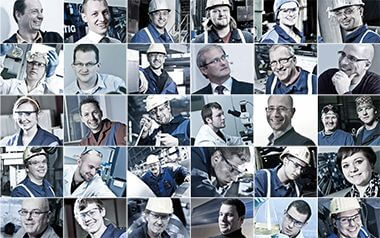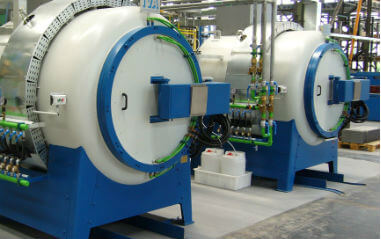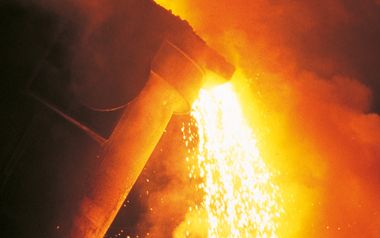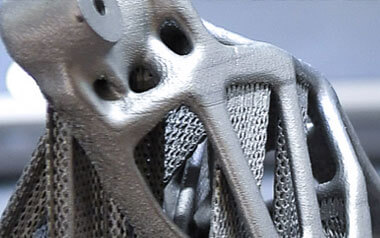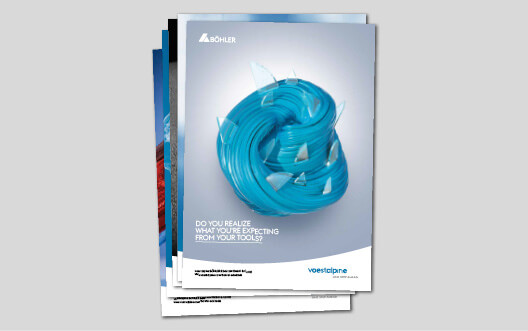Hot work tool steels are alloyed tool steels for applications where the surface temperature is generally above 200 °C. During use, the tool is shortly and cyclically in contact with hot materials, whose temperature is far above 200 °C. In addition to thermal stresses, the tool is also subjected to thermal thermal cycling.
The temperature of the processed materials is between ≈ 400 and 1200℃, which means that the tools must be sufficiently cooled. The longer the contact time and the shorter the relative cooling time, the more the surface temperature of the tools approaches the workpiece temperatures. The contact time ranges from milliseconds in hammer dies and wire rolls to minutes in hot extrusion.
In order to ensure high tool life and productivity tool steels for such applications must therefore withstand not only the general mechanical and abrasive stresses that occur in tool steels, but also high alternating thermal stresses.
The most important properties required of hot work tool steels are e.g. hot strength and hot toughness for fracture resistance and resistance to deformation and hot wear. High temper resistance provides resistance to softening at high temperatures. Thermal shock resistance prevents the early formation of thermal fatigue cracks, so-called heat checkings due to the cyclic loads. These properties are largely determined by metallurgical characteristics and are thus already set during the melting and forming process of the hot work steel. Of course, a high-quality final heat treatment of the tools also plays a major role.
Depending on the temperature stress, hot-work tool steels and high-strength heat-treatable steels with or without pronounced secondary hardness are used. The most commonly used types of steel are tool steels from the group of 3% and 5% CrMoV steels with C contents around 0.4% and varying contents of Mo and V.
Special hot work steels with the highest hot strength and tempering resistance can also be alloyed with high contents of Co. Low-C maraging steels based on a NiCoMoTi alloy system are also used for particularly highly stressed mould inserts.
Special manufacturing methods and processes, such as diffusion annealing, structural treatment (BÖHLER ISODISC grade), electroslag remelting (BÖHLER ISOBLOC grade) or vacuum arc remelting (BÖHLER VMR grade) make it possible to achieve high purity and microhomogeneity and thus decisively improve the fracture resistance and fire crack resistance of these high-performance steels.
Preferred applications of hot work steels are tools for hot forming of light metals and steel such as forging, extrusion, die casting, hot shearing, but also in plastics processing. For very high temperatures, heat-resistant and scale-resistant austenitic steels and nickel-based alloys are also possible, which have less tendency to diffusion-dependent creep due to the alloy composition.





